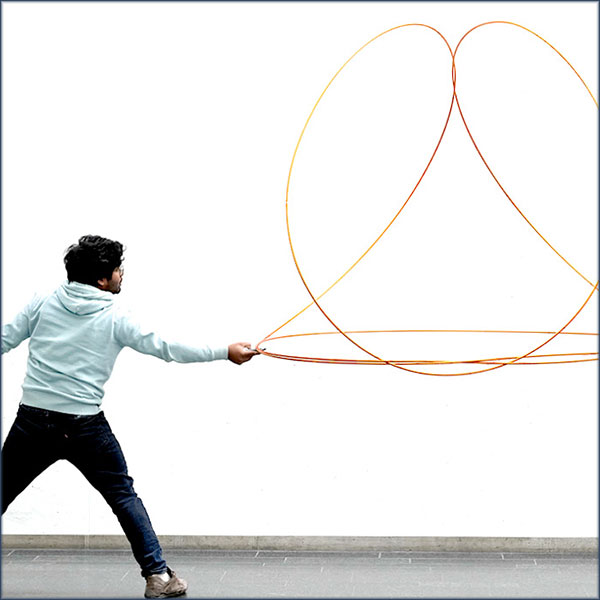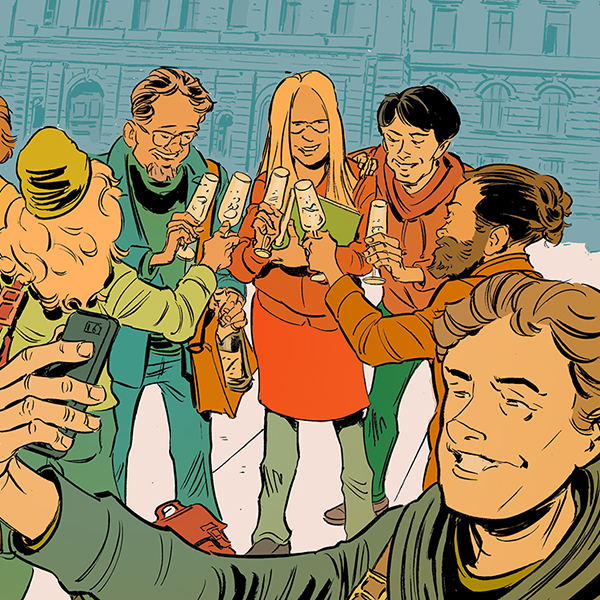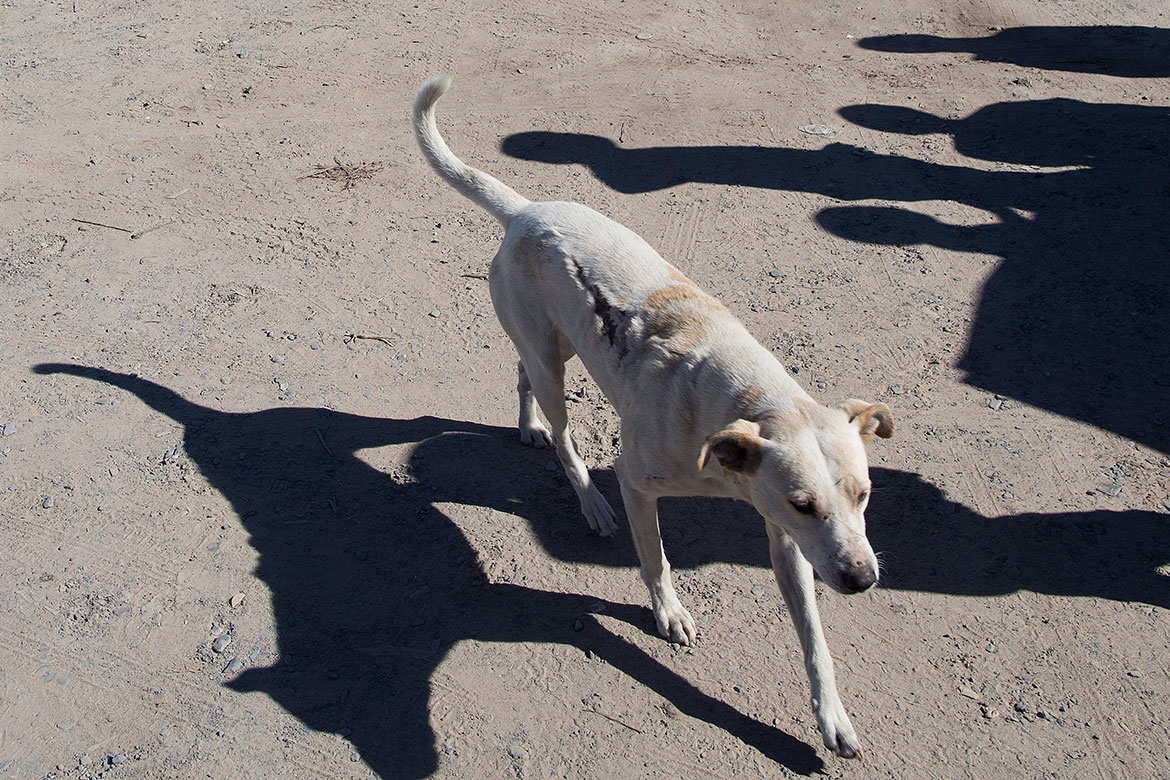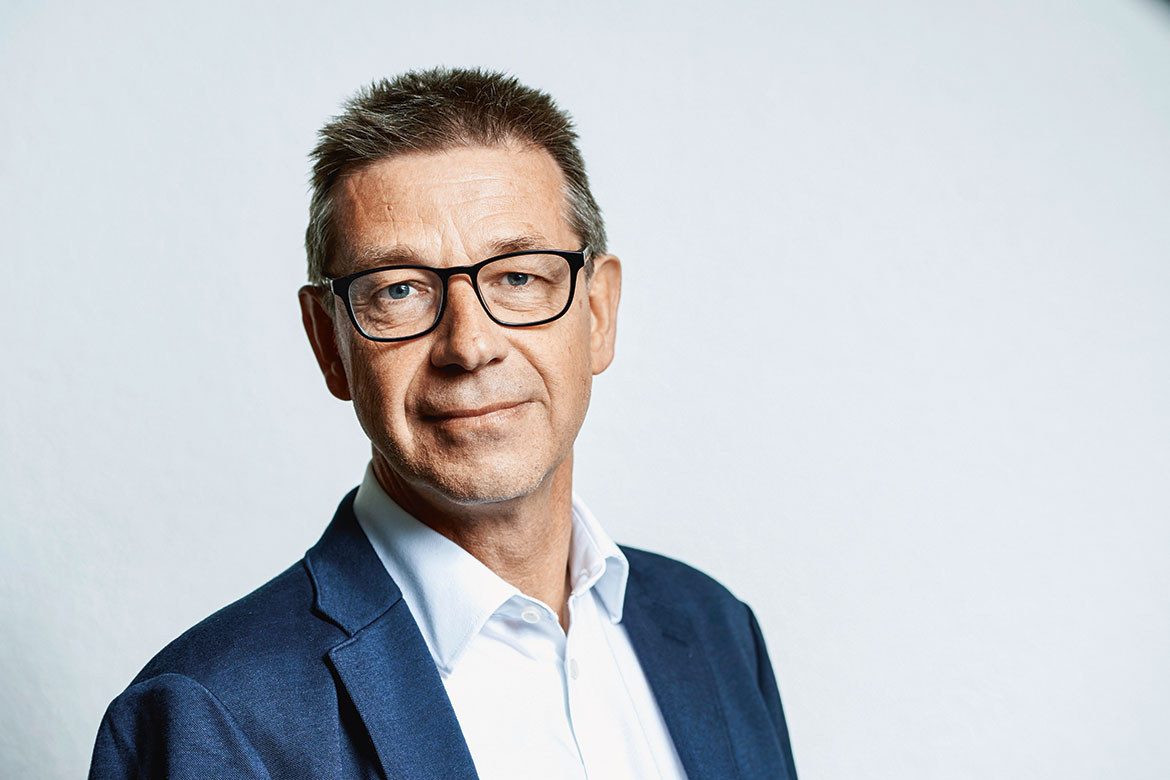“We do not advocate. Science speaks for itself”
Investing in nature pays off and can help both conservation and development, says Inger Andersen, who was this year appointed as the Executive Director of the United Nations Environment Programme UNEP.

Each species matters and has its place – and can often help find pragmatic solutions to the problems faced by mankind, says IUCN’s director, Inger Andersen. | Image: World Bank Group
Based in Gland (VD), the International Union for Conservation of Nature (IUCN) is famous for its Red List, the world’s most comprehensive survey of biodiversity and endangered species. But the organisation also leads numerous conservation and sustainable development projects, thanks to its 1,000 employees and an annual budget of around CHF 120 million. “We cannot separate our interaction with nature from our economic development or our well-being”, says IUCN’s Director General, the Danish economist Inger Andersen.
IUCN’s Red List regularly raises the alarm about the loss of biodiversity. What are you most worried about?
The overarching trends. We are in the middle of the sixth mass extinction and on average are losing species a thousand times faster than the natural extinction rate. Amphibians and corals are under very high pressure, and two thirds of the vertebrate species assessed show a deep decline.
Will you tell us what your favourite species is?
I shouldn’t say it, but I grew up in a place in Denmark where we had night owls. They are huge and sometimes whoosh over your head when you sit outside. They are just stunning.
Charismatic mammals are often mentioned. But the loss of the polar bear at the top of the food chain would have less of an impact on ecosystems than some insects or fungi.
For us, each species matters and has its place, not only for its role in biology but for also its intrinsic and ethical value. It’s what we call “biological democracy”. This planet is not here for us to wreak havoc on.
But we must set priorities. As an economist, how can you assign value so as to decide which species or ecosystems should be saved first?
I don’t think we can look at it in that way. The polar bear is like the canary in the coalmine, which by dying alerts miners to a gas pocket. So it is not a question of picking out one species but of understanding the root cause of the problem. Yes, some species will disappear, and this is normal. But we can only live within the planet’s boundaries.
So are you against assigning economic value to ecosystems for the services they offer?
This approach has value in certain quarters: economists and politicians, for example, are beginning to understand that pollinators offer an economic service that drives agricultural productivity, and that without them, manual or mechanical pollination techniques would massively increase costs.
An interesting a-ha moment occurred in the United States after Hurricane Katrina in 2005. The city of New Orleans with its concrete infrastructure got flooded, but not the areas with mangroves, because they act as natural barriers that absorb the pressure of the high winds and the water. Ordinary people and politicians from a highly developed country suddenly realised that nature can offer solutions to really hard problems.
Where else can nature help?
Forests will become an integral part of the solution for storing CO2 during the transition period when we bring down our carbon emissions. Or take urban planning. A greater integration of nature in our cities provides better protection against the elements. Green spaces bring down the temperature, can absorb intense rainfall better than drains, and usually tend to reduce not only crime but also cardiovascular disease and diabetes. Schools of urban planning and architecture must teach people to think not only of the usual hard infrastructure but also of the green infrastructure.
There is a greater understanding of the returns on investment in nature’s infrastructures, even if we are not yet where we need to be. But we view it differently at IUCN: we are scientists, and above all want to understand the ecosystems’ interwoven character. For us, this kind of economic value is neither good nor bad. It’s more of a tool.
Do you view nature as a kind of Garden of Eden, to be preserved as it is?
No. Mankind is part of nature, just like other living organisms. We cannot separate our interaction with nature from our economic development or our well-being. But we are a dominant species and accordingly have responsibilities: ethical, biological and economic. A billion people go to bed hungry every night, and they have every right to the type of life you or I lead. We need to figure out how to achieve that with the help of our environment, which produces the goods we rely on, in particular clean air, water and food. IUCN very much subscribes to sustainable use, which is a fundamental right of people and especially of local communities. Each country should decide on the level of protection of specific areas, what use should be granted, and what impact tolerated.
How can we reconcile conservation with development?
The strength of IUCN is its 1,400 members, who include NGOs and governments. Each one has an equal vote, be it a small NGO active in Bhutan or the United States administration. Our decisions need to be adopted separately, both in the chamber of NGOs and in the chamber of the States. Once an agreement has been found, it has a strong degree of consent and every chance that it will be adopted into legislation.
Do you push a political agenda?
I must emphasise that IUCN’s job is to provide science, data, knowledge and evidence. We do not advocate. Science speaks for itself. Some of our members are politically active, and often use our data. And sometimes science will recommend certain policies, such as reducing the root causes of species loss. But the reason IUCN is able to retain governments and NGOs as members is because we mainly provide the science.
Why has IUCN worked with companies like Shell, despite the reputational risk?
When we know a project will be carried out in any case, we try and minimise its impact on ecosystems. For example, we have been advising the oil and gas firm Sakhalin Energy, co-owned by Shell, on their energy extraction operations off the Russian Sakhalin islands, which are near the migration route of grey whales. Our scientists provided the knowledge that made the operation less impactful. According to the data, it worked: the population went up from 115 to 174 whales, which is quite a lot.
We have strict guidelines about private partnerships. For instance, we exclude the tobacco and arms industries. What is important is that these partnerships always involve projects, never general sponsorships, because we want to remain independent and have a concrete impact. Altogether, they contribute to less than five percent of our budget.
Why does IUCN work with the Olympics Committee? Big sports do not seem essential for development.
We aim to assist society in achieving sustainable projects, be it for cities, agriculture, or new infrastructure including for sports. The Olympic Games are part of life, so we try to decrease their impact as much as we can. We advise candidate cities on a list of must-haves in terms of sustainability. And our guidelines are also used in other countries for other events, which increases our impact.
Do you worry that recurring pessimistic headlines about biodiversity loss can end up discouraging people, as is the case with global warming?
First, young people have not given up on the climate and they are forcing the topic onto the global agenda. But yes, we must balance our communication and also explain how nature can actually recover – provided we give it half a chance. Species and ecosystems that were on the brink of collapse have been brought back by investing in nature’s infrastructure, by providing protection, by making policy shifts and by ensuring that certain chemicals are banned. This is a story to which people can really relate.
Climate change has its deniers. How come you don’t have such entrenched enemies?
It’s true that conservation has thus far not become so politicised. Maybe because there are many ways to approach the topic. Nature is something that connects us in a different way. And nobody wants to be the generation that sees the death of the elephant.
You are leaving IUCN after five years. What achievement are you most proud of?
I am leaving behind a stronger organisation: more vibrant, effective and efficient, better funded and better staffed. That sounds very arrogant, but that’s just how it is. After all, you asked! The total value of IUCN’s projects has increased by 38 percent since 2015, and is set to increase further as new projects come on stream.
And what about concrete projects?
We’ve really moved forward with reforestation: IUCN had committed to restore 150 million hectares of cut forest by 2020 [around four times the area of Germany, Ed.], and we passed that target already in 2017.




